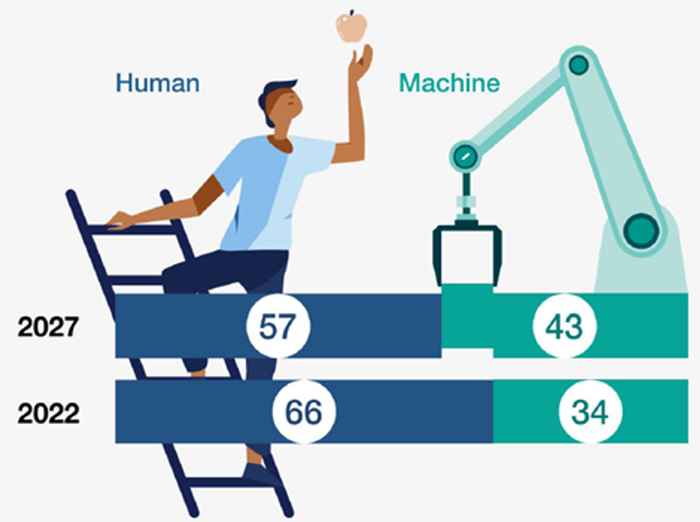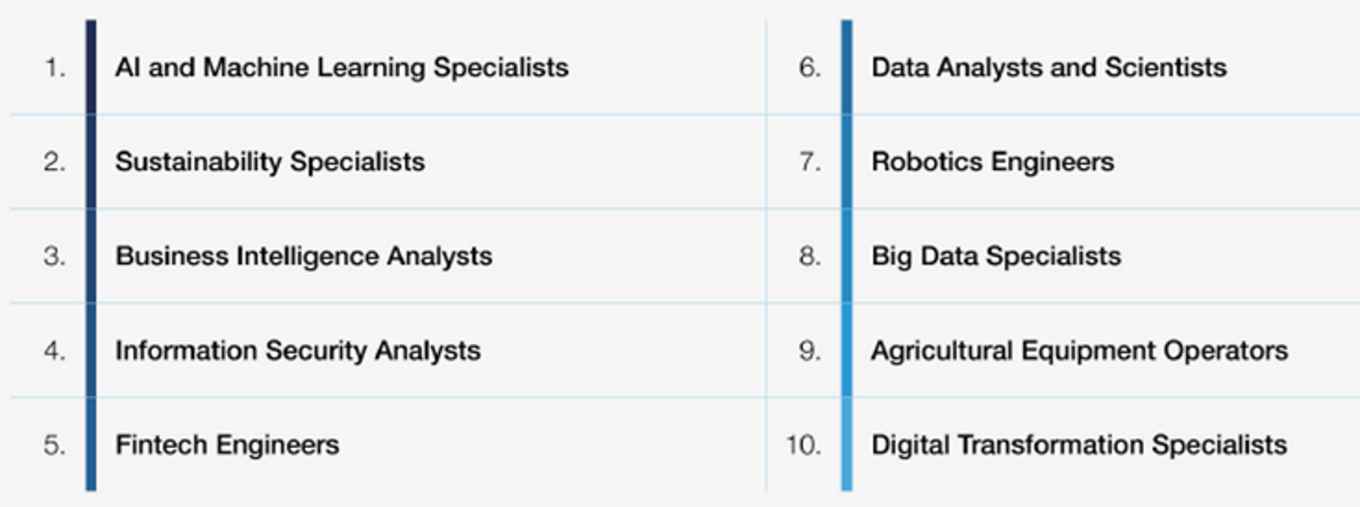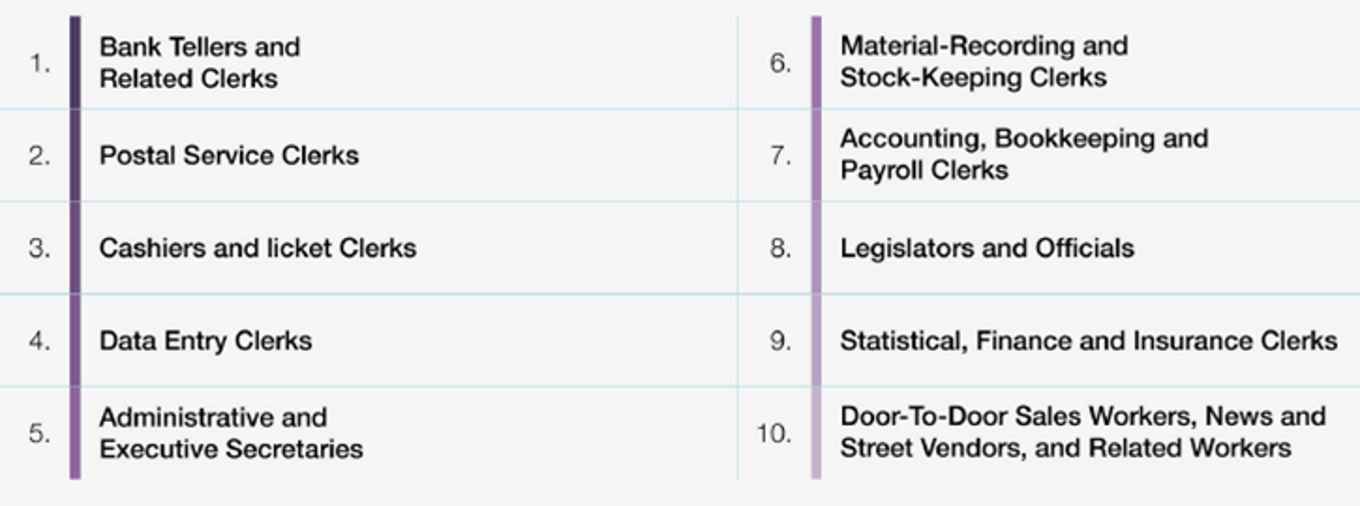
Automation barely increased, while tightness in Dutch labor market persists
Despite the tight labor market in the Netherlands, task automation has hardly increased. In addition, it appears that application of new technologies is the main driver for companies for growth and productivity. Some 75% of companies in the Netherlands are applying big data, cloud computing and AI. Employers expect structural change in 23% of jobs over the next five years, with analytical thinking and creativity being the most important skills. So says the recently published The Future of Jobs Report 2023 by the World Economic Forum (WEF), which was conducted among 803 large companies across a variety of sectors in 45 countries. The UvA’s Amsterdam Centre for Business Innovation (ACBI), headed by Prof. Henk Volberda, is a partner institute of the WEF and contributed to the data for the Netherlands.
 The human-machine frontier: current and expected degree of automation of tasks (source: WEF Future of Jobs report 2023)
The human-machine frontier: current and expected degree of automation of tasks (source: WEF Future of Jobs report 2023)Key findings
- Despite the tight labor market, the degree of automation of tasks is hardly increasing. Compared to 2020, the degree of automation increased by only 1% to 34% of all work, while the expectation was much higher.
- Application of new technologies appears to be the main driver of growth and productivity for companies. Over three-quarters of companies are adopting big data, cloud computing and artificial intelligence.
- Changes in the job landscape are mainly caused by the green transition, adoption of ESG standards and geopolitical factors (formation of more local chains).
- Employers expect a 23% structural change in jobs over the next five years. Globally, there will be a total growth of 69 million jobs and a decrease of 83 million jobs. So this represents a net decrease of 14 million jobs, or 2% of current employment.
- Technology, digitization and sustainability are the three driving forces behind the relatively rapid growth of some jobs and functions. Specialists in AI and machine learning are top the list of relatively fastest-growing occupational groups, followed by sustainability specialists, business intelligence analysts and data security specialists. The strongest absolute decline is expected in administrative positions, largely triggered by advancing digitization and automation.
- Analytical thinking and – in second place – creative thinking remain the most important skills for employees in 2023, according to participating companies. Creativity will be an increasingly important skill.
- Some 44% of employee skills are estimated to become obsolete in the next five years. This means, among other things, that 6 in 10 employees will need additional education and training by 2027.
- A majority of companies give particular attention to women, young people under 25 and people with disabilities as part of their diversity, equality and inclusion policies.
- The wider adoption of ESG standards and sustainability have the greatest net effect on job creation in the Netherlands.
- In the Netherlands, we see strong growth and influence of data analysts, project managers and business development managers, while accountants and payroll administrators are increasingly left out.
Fastest growing jobs 2023-2027
 Bron: WEF Future of Jobs report 2023
Bron: WEF Future of Jobs report 2023Fastest shrinking jobs 2023-2027
 Bron: WEF Future of Jobs report 2023)
Bron: WEF Future of Jobs report 2023)About the study
The World Economic Forum publishes several indexes and trend analyses of global economies. One such report is the Future of Jobs Report, the first edition of which dates back to 2016. The findings underlying the fourth edition of the report are again based on a survey of large domestic and international companies. In the current edition, 803 companies worldwide, spread across a variety of sectors, from a total of 45 countries participated, including the Netherlands. A total of more than 11.3 million employees work for these participating companies. The survey focuses on changing ways of working as a result of expected developments at the macro and corporate level in the period 2023-2027.
Follow this link to download the report where it was originally posted.



